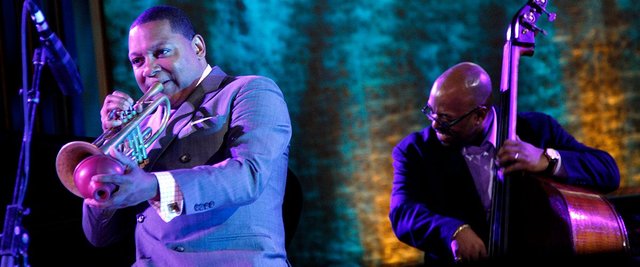International Jazz Day 30 April
Hi there!
This is a day to honour jazz and its enduring legacy, as well as to recognize the power of this music to bring people together."
— UNESCO Director-General Audrey Azoulay
Why Jazz?
By celebrating International Jazz Day, we:
Recognize the unique musical style that jazz represents.
Raise international awareness of the need for intercultural dialogue and mutual understanding.
Mobilize the intellectual community, decision-makers, cultural entrepreneurs, cultural and educational institutions and the media to promote jazz-related values as a vector of UNESCO’s mandate, pioneering role and intellectual mission.
Reinforce international cooperation and communication in the field of jazz music.
When and how did Jazz emerge?
After the emancipation of the slaves, many settled in New Orleans and many began to play, without formal musical training, blues and spirituals, but also in the bands of the city. Around the burials the bands played fast melodies in 2/4, like Did not He Ramble or When the Saints Go Marching In. The bands abounded in New Orleans and between them established street competitions very accused. Many future jazz musicians played in them, although that was not yet jazz.
So, what step had to be taken, we can say, for jazz to emerge? When and how did jazz emerge? We quote ideas (we do not quote them literally except quotes) from Gunter Schuller in his book The Jazz. Its roots and its development. Pp 80 and ss.
There is no starting date for jazz as definite and autonomous music. It is usually located between 1895 and 1917, the year in which the term jazz was generalized and in which the Original Dixieland Jazz Band made its first recordings. It also seems clear that early jazz emerged in many places in the United States, not just in New Orleans.
Testimonies like guitarist Danny Barker recall that in the late nineteenth and early twentieth centuries the most exciting form of entertainment n orleansmusical bands in New Orleans was not the jazz bands but the brass bands, and the veteran clarinetist Alphonse Picou of New Orleans He affirmed that the music he listened to at the beginning of the century was not ragtime, but marches, wind music, parades. The musicians of the time remember that still for the years 1917 and 1918 they did not do improvisation (they did not know what it was) but ornaments in the melody. Other testimonies recall that the ragtime piano was the main influence in the Ohio area, and that the change to jazz took place around 1912 to 1915, when the four-string banjo and the saxophone entered the bands. The performers then began to elaborate on the melodic lines, but the harmony and rhythm of the compositions they played remained fixed, the same.
Band music, marches, on the street, and instrumental ragtime in dance halls. And as for New York, Bushell says that in the early 20's you could only hear blues and real jazz in the disreputable cabarets where the lower classes went. In the black middle-class home he did not usually allow himself to play blues and boogie-woogie, as he was associated with a low status.
The blues did not change their style from the 1880s to the 1920s. George Morrison, musician at the beginning of the century, how between 1901 and 1911 he, his brother, his brother-in-law ... could not play "original" music (blues ...) in its set of strings: the repertoire was of waltzes, popular ballads, and "as they were written", that is, they could not improvise. No rude music was tolerated, vulgar all was refined, sentimental music. Therefore most of the musicians that soon after began to make jazz played "sweet" music.
Most of the songs recorded before 1923 were made by bands of novelties, potential groups, germinal jazz, forced by the record companies to play dance music for consumption, which the public demanded: jazz was not yet a consumer good , as it would be only a few years later. We must wait for the recordings of King Oliver or Louis Armstrong to find music of special quality. Social barriers to colored musicians also prevented previous recordings. This is why the first jazz musicians only engaged in this music marginally and occasionally, and many knew the "Western" repertoire and had received a strictly classical education.
In short, New Orleans musicians played all kinds of music and only part of it contained elements that soon became primitive jazz. There was a kind of marginal music that was on the edge of jazz. The music that later began to be called jazz was only interpreted marginally, depending on the place and social extraction where it was played.
Everyone started recording in 1923, which is also the year that Bessie Smith recorded her first blues records Original dixieland jazz band after Mamie Smith unleashed blues fashion in 1921. That's when jazz began to unify: when it happened to be a demanded consumer item in the entertainment areas of Chicago, New York, Los Angeles, Kansas City and when - almost at the same time - the records of the Original Dixieland Jazz Band began to spread.



Sorry for inconvenience, your post has been manually re-steemed now. Thanks for using our service!
I don't see an instruction page anymore for how to use your service. Can you link to one on your profile page in case we forget? I didn't see any notice on the increase to .03 SBD(which of course won't keep me from using this regularly.) Thanks! 🙂
Thanks brother, I will re-write new post since old post can't be edited.
Nice content. Lot of hard work.